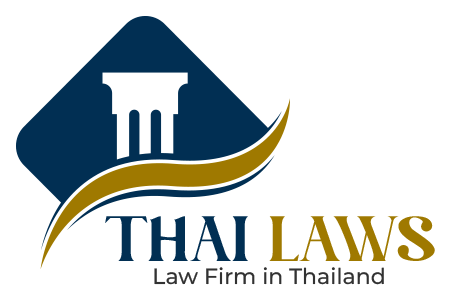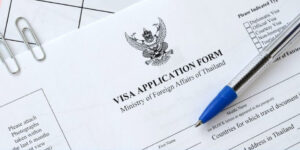The Thailand Permanent Residency Visa allows foreigners to reside permanently in Thailand without needing to renew their visa annually. This visa is highly desirable for those intending to live long-term in the country, offering benefits such as easier business dealings, reduced bureaucratic processes, and pathways to citizenship. Managed by the Royal Thai Immigration Bureau, the Permanent Residency Visa is granted on a quota system and is open to applicants with a strong economic or familial connection to Thailand.
1. Eligibility Criteria for Permanent Residency
Applicants must meet specific eligibility requirements, including:
- Visa Status: The applicant must have held a non-immigrant visa for at least three consecutive years prior to applying.
- Employment and Income: For employment-based applicants, proof of stable income and employment with a Thai company is required.
- Investment: Applicants investing at least THB 3-10 million in Thailand may qualify under the investment category, subject to regulations on acceptable investments.
- Marriage or Family: Foreigners married to Thai nationals or with Thai children can apply, though they must demonstrate financial stability.
- Academic or Professional Expertise: Individuals with specialized skills or significant contributions to Thailand’s economy or society are also eligible.
Meeting these requirements increases the chances of approval in Thailand’s annual permanent residency quota, which generally allows 100 applicants per nationality.
2. Application Process
The application process for Thai permanent residency is thorough and can take several months:
a) Document Submission
Applicants must submit comprehensive documents, including a valid passport, work permit (if employed), proof of income, tax returns, a house registration document, and investment or business licenses, if applicable.
b) Interview and Language Test
Applicants are typically interviewed in Thai and required to take a basic Thai language test, ensuring they can communicate and integrate into Thai society. Fluency is not required, but a basic understanding is helpful.
c) Police Clearance and Medical Check
Police clearance certificates from both Thailand and the applicant’s home country are required. Applicants must also pass a medical check to verify they do not have communicable diseases or other health issues that would affect public health.
d) Final Approval and Residency Book
After review by the Immigration Commission, approved applicants are issued a blue residency book (Tabien Baan) and must register their residence. This blue book is similar to the national house registration book given to Thai citizens and provides proof of residency.
3. Benefits of Permanent Residency in Thailand
Holding permanent residency in Thailand provides various benefits:
- No Visa Renewals: Permanent residents can live in Thailand indefinitely without needing to renew their visa or go through 90-day reporting.
- Work Permit: Permanent residents can apply for a work permit without the need for a sponsoring company, providing greater flexibility in employment.
- Pathway to Citizenship: After holding permanent residency for five years, residents may apply for Thai citizenship, allowing them to hold a Thai passport.
- Property Ownership: While foreigners cannot own land, permanent residents can more easily obtain long-term leases or buy condominiums in Thailand.
- Ease of Entry and Exit: Permanent residents can obtain a re-entry permit, allowing them to leave and return to Thailand without affecting their residency status.
4. Limitations of Permanent Residency
Despite its benefits, permanent residency in Thailand has some limitations:
- No Voting Rights: Permanent residents do not gain the right to vote or participate in Thai politics.
- Land Ownership: Permanent residency does not change foreign ownership restrictions on land; foreigners remain unable to own land directly.
- Family Sponsorship: While permanent residents can sponsor certain family members for residence permits, they cannot sponsor extended family members as Thai citizens can.
5. Fees and Processing Times
Applying for a Thailand Permanent Residency Visa involves specific fees and processing timelines:
- Application Fee: The non-refundable application fee is approximately THB 7,600. If approved, the issuance fee ranges from THB 95,000 for employment-based applicants to THB 191,000 for investment-based applicants.
- Processing Time: Processing generally takes 6-12 months, as applications are reviewed by the Immigration Bureau and relevant government departments.
6. Renewal and Maintaining Residency
Permanent residency in Thailand requires periodic renewal of the blue residency book. While the visa itself does not expire, residents must notify the Immigration Bureau if they change addresses. Leaving Thailand for more than one year without a re-entry permit may lead to loss of residency.
Conclusion
Obtaining a Thailand Permanent Residency Visa provides foreigners with a stable, long-term residence option. Understanding eligibility criteria, benefits, limitations, and the rigorous application process helps prospective applicants make informed decisions. Consulting with immigration experts or legal advisors experienced in Thai permanent residency can help streamline the process and ensure compliance with Thai regulations, ultimately making the path to residency smoother and more efficient.




